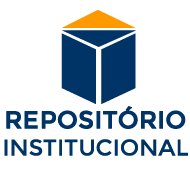Use este identificador para citar ou linkar para este item:
http://aprender.posse.ueg.br:8081/jspui/handle/123456789/29| Título: | ANÁLISE DAS PRÁTICAS PEDAGÓGICAS DE UM PROFESSOR DE LÍNGUA PORTUGUESA DO 6º ANO DO ENSINO FUNDAMENTAL DE UMA ESCOLA EM ALVORADA DO NORTE-GOIÁS |
| Autor(es): | Anjos, Elizângela Pereira dos Silva, Iseneide Francisca da |
| Palavras-chave: | Professor Língua Portuguesa Segunda Fase do Ensino Fundamental 6º Ano Leitura Escrita |
| Data do documento: | 25-Nov-2013 |
| Editor: | Universidade Estadual de Goiás - UEG - Câmpus Posse |
| Resumo: | O presente trabalho aborda o papel do professor de Língua Portuguesa, o idioma oficial do Brasil. Sendo assim, o meio de comunicação usado no dia a dia, para se expressar, transmitir e receber informações, manifestar opiniões, redigir documentos, entre outras funções que se tem uma língua. A criança aprende a falar por volta dos dois anos de idade, através do convívio com sua família e com as pessoas próximas, mas vai aprender a ler e a escrever quando ingressar na escola, instituição constituída com esta finalidade. Com o ingresso do aluno na segunda fase do ensino fundamental – 6º Ano - o processo de alfabetização deve estar concluído, proporcionando ao aluno uma boa capacidade de leitura e de escrita, de acordo com as normas cultas da língua portuguesa. Entretanto, nem sempre isso ocorre, sendo que muitos alunos ainda possuem certa dificuldade para ler, interpretar e escrever corretamente. Cabe ao professor de língua portuguesa buscar meios e maneiras para auxiliar os alunos que já estão passando por várias mudanças na forma da estrutura educacional a que estavam acostumados, a se adequar às mudanças e a progredir de forma segura e satisfatória na busca pelo aprendizado. Ocorre uma mudança significativa na vida escolar dos alunos ao final da primeira fase e início da segunda fase do ensino fundamental. Nesta etapa o processo de alfabetização deve estar concluído com os ensinamentos de um pedagogo, que passam agora a serem divididos por professores de diversas áreas do conhecimento. Os professores possuem várias turmas e os alunos vários professores, que ao final de sua aula saem da sala para trabalhar em outra. Nesta troca de professores, de didáticas de ensino, e muitas vezes de escola, os alunos passam por muitas mudanças e costumam sentir dificuldades para se adaptar a essa nova realidade. Diante das diversas dificuldades que os alunos possam apresentar, o professor de língua portuguesa possui um papel fundamental, pois precisa buscar maneiras de sanar possíveis carências da língua, que possam dificultar o aprendizado das demais disciplinas, torna-se um professor facilitador, que busca os meios modernos e o auxílio de novas tecnologias, aliando seus conhecimentos de professor às regras propostas pelas leis e parâmetros educacionais, tornando o espaço da sala de aula um verdadeiro laboratório para descobrir e transformar os saberes de seus alunos. ____________________________________________________________________________ABSTRACT This paper discusses the role of the teacher of Portuguese, which is the official language of Brazil, so the means of communication used in everyday life, to express, transmit and receive information, express opinions, drafting documents, among many other functions that has a language. The child learns to speak at around two years of age, through contact with his family and those around him, but will learn to read and write when entering school, which is the institution established for this purpose. With the entry of the student in the second stage of primary school - Year 6 - the literacy process must be completed, providing the student with a good ability to read and write, according to the norms of educated Portuguese. However not always the case, and many students still have some difficulty in reading, interpreting and writing correctly. And, it is the Portuguese language teacher seeking ways and means to assist students who are already going through several changes in the way the educational structure that were used to fit the changes and progress, safely and satisfactorily in the pursuit of learning. Occurred a significant change in the lives of pupils at the end of the first phase and beginning of the second stage of basic education. At this stage the literacy process must be completed with the teachings of a teacher, passing now being divided by professors from different fields of knowledge. Teachers have several classes many teachers and students who at the end of your class leave the room to work in another. In the exchange of teachers, didactic teaching, often, school, students go through many changes and often have difficulties to adapt to this new reality. Given the various difficulties that students can submit the Portuguese language teacher has a key role, because it needs to find ways to remedy possible shortages of language, which can hinder the learning of other disciplines, so a teacher facilitator who seeks the means and the help of modern technologies, combining their knowledge of the rules proposed by Professor laws and educational parameters, making the space of the classroom, a laboratory to discover and transform the knowledge of their students. |
| URI: | http://177.87.249.7:8081/jspui/handle/123456789/29 |
| Aparece nas coleções: | Monografias |
Arquivos associados a este item:
| Arquivo | Descrição | Tamanho | Formato | |
|---|---|---|---|---|
| Análise das práticas pedagógicas.pdf | 835,83 kB | Adobe PDF | Visualizar/Abrir |
Os itens no repositório estão protegidos por copyright, com todos os direitos reservados, salvo quando é indicado o contrário.
